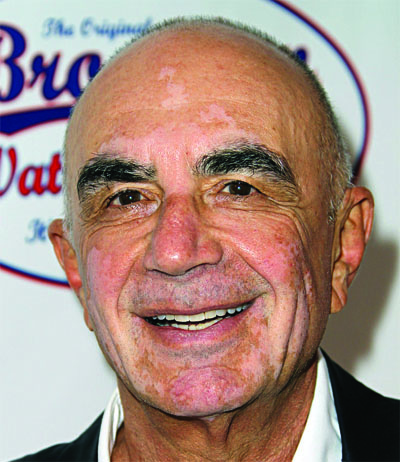 Photo from Pexels
Photo from Pexels More than a decade later, renowned lawyer Robert Shapiro still can’t seem to get a distinctive ringing out of his head.
“The phone rang and rang and rang. It seemed to ring a little too long. It was a little too early,” Shapiro told a crowd on May 8. “Then we got the call that no parent would ever want to get.”
The October 2005 phone call was regarding Shapiro’s son Brent, a 25-year-old college undergrad who was contemplating law school. A recovering drug addict, Brent relapsed in the early hours of that morning at a party. He was buried just over a day later.
An overflow crowd of nearly 300 people, mostly observant Jews, at YULA Girls High School listened to Shapiro and other speakers during a program called “We Need to Talk About Prevention.”
The drug and mental health awareness event was organized by the Aleph Institute, a Florida-based Jewish nonprofit, which runs Project Tikvah — “tikvah” meaning “hope” in Hebrew — a program that advocates for alternative sentencing options and interventions for struggling Jewish youth and those in prison.
The Aleph Institute, which has offices in Los Angeles, was awarded a 2016 Cutting Edge Grant of $250,000 from the Jewish Community Foundation of Los Angeles for its Project Tikvah proposal.

The event featured mental health professionals, heads of treatment centers and former addicts discussing the prevalence of substance abuse and mental health issues, particularly among youth in the city’s observant Jewish community. It was repeatedly mentioned by speakers that many in observant and Orthodox circles are hesitant to address substance abuse and mental health concerns for fear of judgment and stained reputations.
Aleph Institute Vice President Jimmy Delshad, a former Beverly Hills mayor, who is Iranian-American, told the Journal that he thinks the city’s Persian-Jewish community is “sweeping the issue under the ‘Persian rug.’ ”
Ari Stark, vice president of operations for Destinations, a company that operates teen treatment centers in California and Nevada, cited statistics to illustrate the seriousness of the issue. He said East Coast Orthodox communities have experienced 75 suicides in the past year, all attributable to either drug or alcohol abuse and mental health issues. Each case involved an individual under the age of 35, he said.
“We as a community are not immune,” he said. Stark added that in his work at his company’s teen treatment centers, he has dealt with students from most of the city’s yeshivas and elite Jewish day schools.
Josh Harvey, 32, grew up a Jewish day school poster boy in West Los Angeles. The product of an observant Jewish household, he attended Pressman Academy of Temple Beth Am, a Pico-Robertson-area day school. As a teen, he turned to substance abuse and began to sell drugs. He spent years in and out of treatment and jail.
Now, sporting stylish glasses and ornate tattoos on his arms, he’s four years clean and sober and working as an addiction counselor at a Los Angeles recovery center. Harvey applauded the efforts of the program organizers to raise awareness in the Jewish community.
“We need to know that even Jews can be addicts,” he said. “I can’t believe that the Jewish community would hold such an educational event. It’s so positive for our community to acknowledge that addiction exists and we need to treat it. We need to be aware of it. We need to make families aware of it. We need to make communities aware of it because this is a problem that isn’t going away.”
According to Leah Perl, Project Tikvah’s associate director, the aim of the event was to initiate a difficult, ongoing dialogue.
“Los Angeles is ready to start tearing down the stigma and shame associated with mental illness and drug addiction,” she said. “By ignoring it, we’re losing kids. This is happening within our own community. You can’t teach people everything in one event, but you can start the conversation.”
Dr. Ron Nagle, a Beverly Hills pediatrician, emphasized the need to monitor drug use in the home. He poured dozens of Tylenol pills into a tin cup, showing how many it might take to induce an overdose. He then took just two of them, meant to represent common prescription painkillers such as Oxycontin or Vicodin, and said, “That’s all it might take.”
Shapiro, well known as one of O.J. Simpson’s defense lawyers when the former football star faced murder charges, established in 2006 the Brent Shapiro Foundation, an organization dedicated to creating awareness about addiction diseases and finding ways to help halt their spread. He left the audience with one final plea for increased attention to what he repeatedly referred to as an epidemic.
“If there is a problem, don’t run away from it; face it head on and do the best you can to get the help you need,” he said. “And if there’s not a problem, do everything you can to prevent one.”






















 More news and opinions than at a Shabbat dinner, right in your inbox.
More news and opinions than at a Shabbat dinner, right in your inbox.